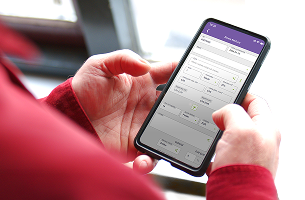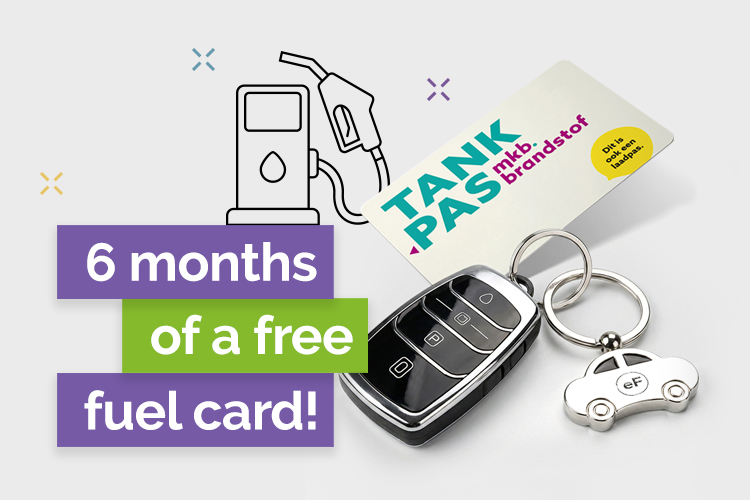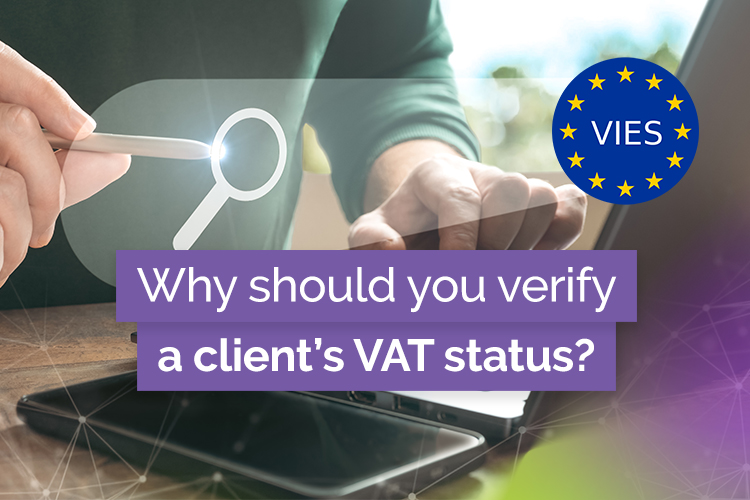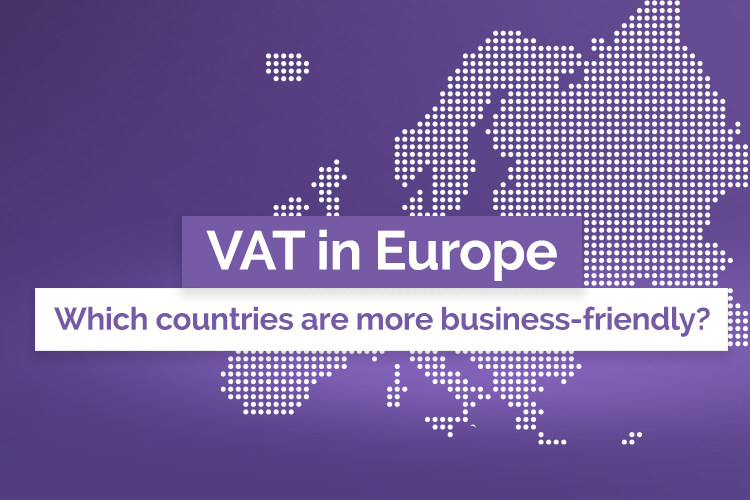Business Car in the Netherlands: 5 Smart Tax Tips
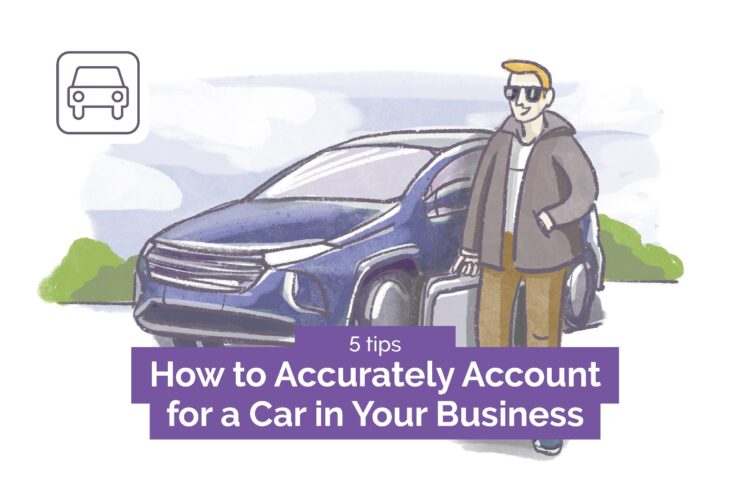
Using your car in a Dutch business? Be careful – how you use and declare your vehicle has a big impact on your taxes. Many business owners don’t realise that private vs. business use can significantly change what you’re allowed to deduct.
We spoke to Ewelina Parfieniuk, owner of accounting firm Pol-Advies in Rotterdam. Here are her 5 key tips to avoid costly mistakes when using a car in your business in the Netherlands.
Why is car tax in the Netherlands so complicated?
Car-related deductions depend on many factors. These include the type of vehicle (passenger or van), who owns it (you or the business), and how it’s used (business only or also privately).
If you drive a privately owned car, you can only deduct kilometres using a fixed rate. But only if you keep a proper mileage log. If the car is registered to your business and you also use it privately, you’ll likely have to pay extra tax, known as bijtelling.
That’s why knowing the rules – or working with a good accountant – is essential.
1. Using a private car? You can only deduct mileage.
If your car is not registered as a business asset, the only thing you can deduct is mileage – currently €0.23 per kilometre.
To claim it, you need a complete and correct trip log. This is a key requirement of the Dutch tax office (Belastingdienst). Any other car-related expenses – like fuel, repairs or insurance – cannot be claimed if the car is privately owned.
Ewelina Parfieniuk explains:
“Many clients pay for petrol with their business card and submit receipts. But that’s not allowed. Only mileage is deductible. Still, that can be a big tax benefit. One client billed €70,000 a year and drove 18,000 km for work. He deducted €4,140, reducing his taxable income to €65,860.”
Need help tracking your mileage? eFaktura.nl lets you log trips and share them directly with your accountant.
Learn what a compliant mileage log should look like HERE.
2. Log even short trips – it adds up!
Many entrepreneurs think short trips aren’t worth logging. But over a year, those little drives add up. It’s a habit that pays off.
Ewelina Parfieniuk says:
“Some clients skip everyday drives – like going to a client or the building supply store. But driving 10 km to a job site every day adds up to 4,800 km per year. That means a €1,104 deduction!”
Even short trips can save you real money on your taxes. Track them all.
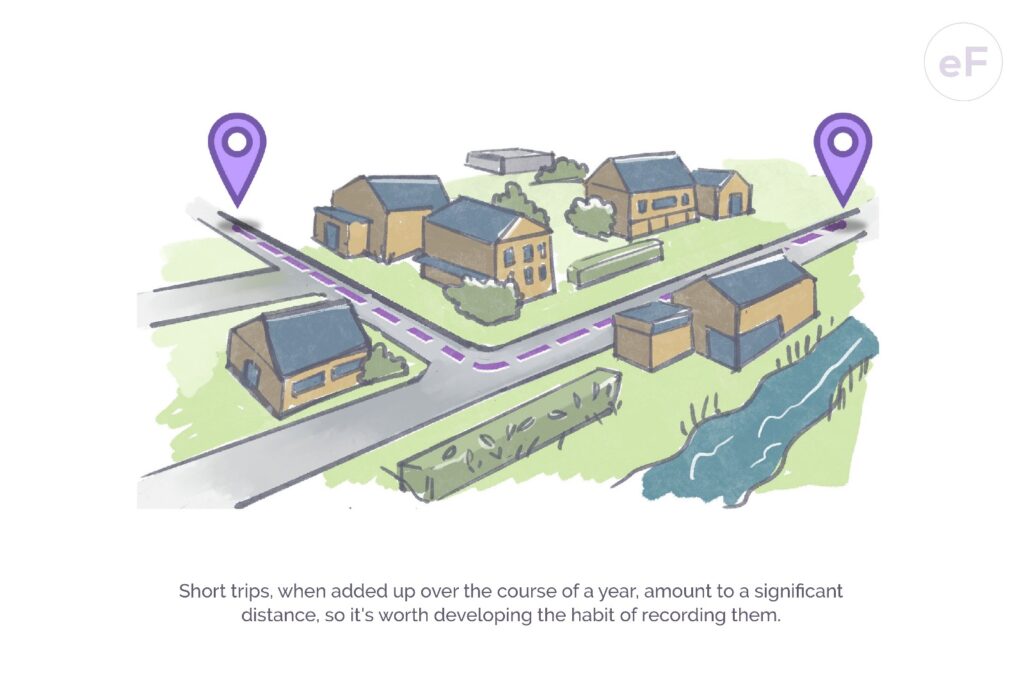
3. Driving a van? File the “No Private Use” form.
If you drive a company van and never use it privately, you can skip mileage tracking and avoid bijtelling.
But you must file a declaration with the tax office:
Verklaring geen privégebruik auto (No Private Use of Company Car).
This allows you to deduct 100% of the van’s costs – fuel, parking, insurance, maintenance – with no extra taxes.
Ewelina warns:
“Many business owners think a van automatically counts as 100% business use. But unless you file the form, the tax office assumes private use and adds bijtelling. You’ll have to prove business-only use with a full log – or face higher taxes and possible fines.
Want to organize your cooperation with your accountant the right way? Read how to do it HERE.
4. Company car used privately? Know your options.
If you use a company car for both business and private purposes, the tax office will apply bijtelling – an extra tax added to your income. Bijtelling increases your taxable income. It works the opposite of mileage deductions. You can avoid bijtelling by logging all trips and showing that you drove less than 500 km privately per year.
Bijtelling rates:
- 22% of list price – for cars under 15 years old
- 35% of market value – for cars older than 15 years (youngtimers/oldtimers)
Ewelina advises:
“Bijtelling can be expensive. If you rarely use the car privately, keep a mileage log and mark all private trips. Without it, the tax office will automatically apply bijtelling.”
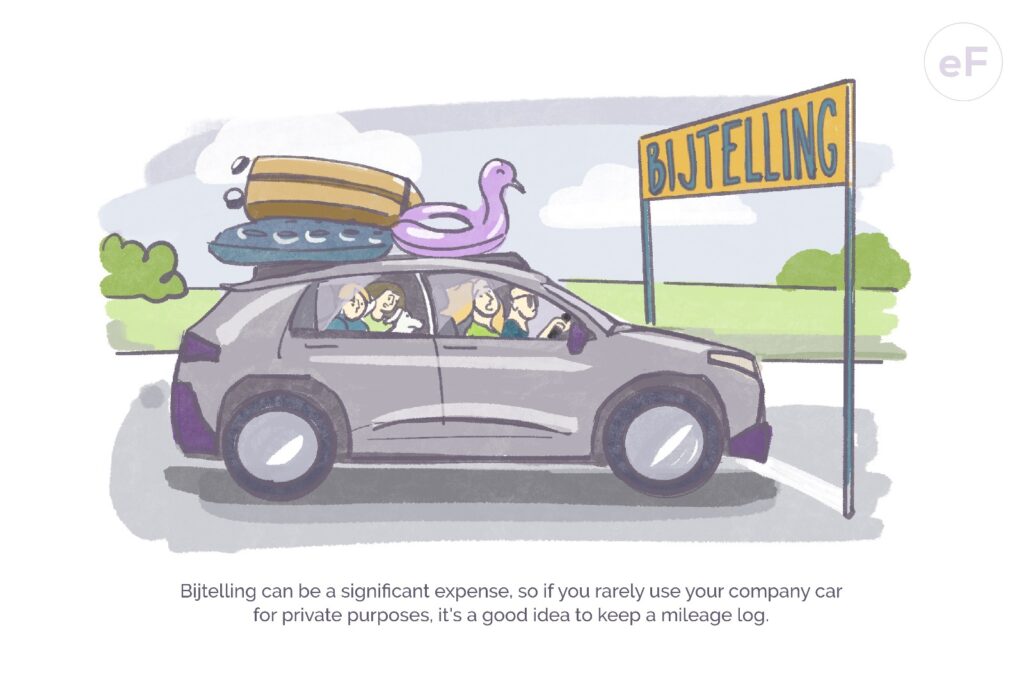
5. Deducting VAT? Watch out for VAT-bijtelling.
If you deduct VAT when buying a business car, but also use it privately, you must pay back part of the VAT. This is known as VAT-bijtelling.
This isn’t added to your income – it’s a real payment to the tax office.
VAT-bijtelling amount:
- 2.7% of the car’s list price – if you don’t keep a mileage log
- If you log mileage, you only repay VAT for actual private use
Ewelina explains the difference:
“Many clients confuse bijtelling and VAT-bijtelling. One affects your taxable income, the other is actual money you must repay. For example: If you bought a €40,000 car and deducted €6,940 VAT but don’t keep a log, you owe 2.7% of the list price – that’s €1,080 to pay back.”
Final thoughts – stay informed and keep records
Declaring a car in your business requires up-to-date knowledge and good documentation. Even small mistakes – like missing mileage logs or incorrect VAT deductions – can lead to tax bills or fines.
Ewelina Parfieniuk says:
“Many clients assume car deductions work like in Poland. But Dutch rules are stricter. I’ve seen small errors lead to big tax bills. That’s why I always say: know the rules and document everything properly.”
How to avoid mistakes?
To make the most of your tax options – and avoid bijtelling – talk to an experienced accountant. They can help choose the best method for your situation.
Also, use a good business administration tool like eFaktura.nl. It helps you log mileage, manage costs, and stay on top of your bookkeeping – without the stress.
Ewelina Parfieniuk is the founder of Pol-Advies in Rotterdam. She specialises in bookkeeping and tax services for small businesses in the Netherlands and Poland – with a strong focus on car-related tax rules.

